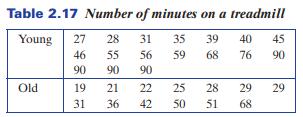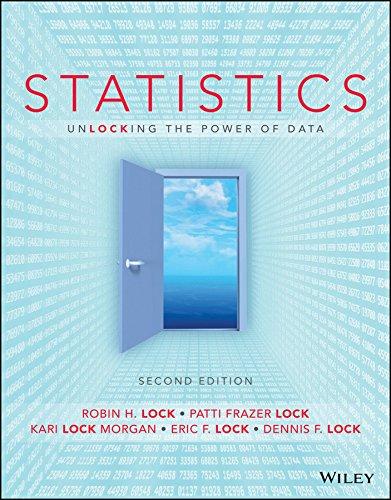There is some evidence that young blood might improve the health, both physically and cognitively, of elderly
Question:
There is some evidence that "young blood" might improve the health, both physically and cognitively, of elderly people (or mice). Exercise 2.69 on page 75 introduces one study in which old mice were randomly assigned to receive transfusions of blood from either young mice or old mice. Researchers then measured the number of minutes each of the old mice was able to run on a treadmill. The data are stored in YoungBlood. We wish to estimate the difference in the mean length of time on the treadmill, between those mice getting young blood and those mice getting old blood. Use StatKey or other technology to find and interpret a \(90 \%\) confidence interval for the difference in means.
Data From Exercise 3.69:
Several studies in mice indicate that it might. In the studies, old mice (equivalent to about a 70-year-old person) were randomly assigned to receive blood plasma either from a young mouse (equivalent to about a 25-year-old person) or another old mouse. The mice receiving the young blood showed multiple signs of a reversal of brain aging. One of the studies measured exercise endurance using maximum treadmill runtime in a 90-minute window. The number of minutes of runtime are given in Table 2.17 for the 17 mice receiving plasma from young mice and the 13 mice receiving plasma from old mice. The data are also available in YoungBlood.

Step by Step Answer:

Statistics, Enhanced Unlocking The Power Of Data
ISBN: 9781119308843
2nd Edition
Authors: Robin H Lock, Patti Frazer Lock, Kari Lock Morgan, Eric F Lock, Dennis F Lock





